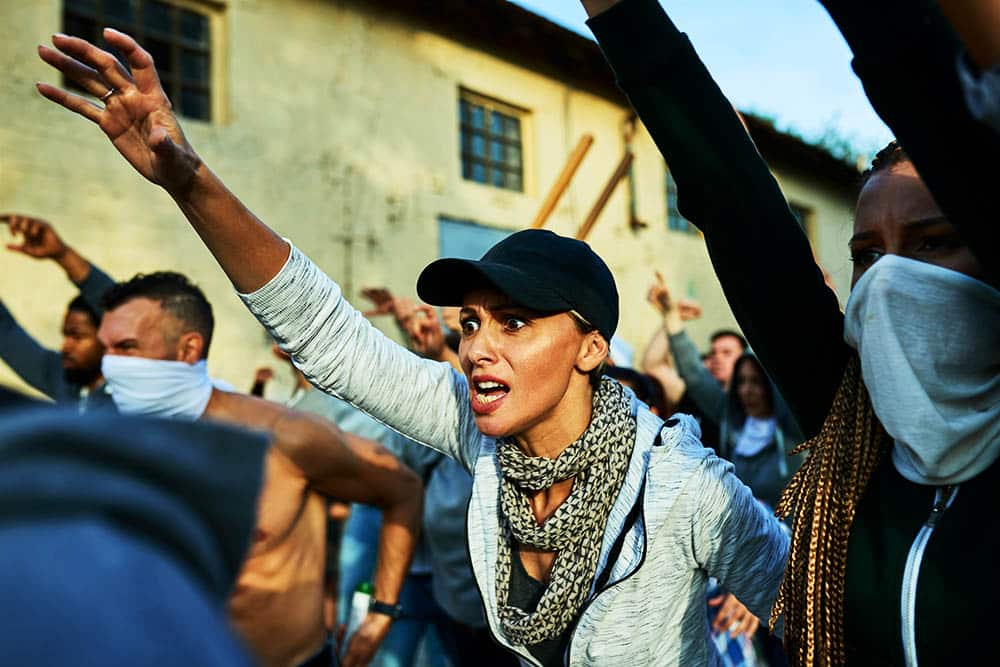Social media has emerged as a powerful tool in the hands of Venezuelans seeking political change and democratic empowerment. In a country plagued by political turmoil, economic crisis, and a shrinking free press, social media platforms have provided an outlet for citizens to voice their opinions, mobilize protests, and raise awareness about the dire situation in Venezuela. Through ingenious strategies and creative campaigns, Venezuelan activists have leveraged social media to navigate the challenges of censorship, connect with a global audience, and facilitate political dialogue.
Challenging Censorship: A Platform for Citizen Journalism
One of the greatest challenges faced by Venezuelans is the government’s tight grip on traditional media outlets. Freedom of the press is severely limited, with independent journalists often facing harassment, intimidation, and even imprisonment for their critical reporting. In this media vacuum, social media has become a crucial avenue for citizen journalism, allowing ordinary Venezuelans to share firsthand accounts and shed light on the realities faced by their communities.
Social media platforms, such as Twitter and Facebook, have played a significant role in circumventing censorship by enabling real-time reporting and disseminating information about ongoing protests, shortages of basic necessities, and human rights violations. Hashtags like #SOSVenezuela and #SOSVenezolano have gained traction beyond the country’s borders, drawing international attention and support for the Venezuelan people’s struggle.
Mobilizing the Masses: Coordinating Protests and Demonstrations
Social media has proven instrumental in mobilizing Venezuelans to take to the streets and express their discontent with the government’s policies. Platforms like WhatsApp, Telegram, and Instagram have been harnessed by activists to rally support for protests, coordinate logistics, and share real-time updates on emerging developments. This digital grassroots organizing has allowed dissenting voices to bypass traditional hierarchies and bridge divisions within the opposition movement.
The use of social media platforms for organizing, however, comes with its challenges. Government surveillance and crackdowns have forced activists to adopt encryption techniques and take precautions to protect their identities. Nonetheless, the power of social media networks to quickly mobilize large-scale demonstrations and create a sense of unity among protestors cannot be underestimated.
Fostering Dialogue and Global Solidarity
Social media platforms have facilitated critical political dialogue among Venezuelans themselves and with the global community. Citizens use Facebook groups, Twitter threads, and online forums to discuss potential solutions, share ideas, and collectively problem-solve. This digitally enabled conversation has allowed for greater inclusivity, as individuals who might otherwise be marginalized are empowered to voice their opinions and contribute to the democratic process.
Furthermore, social media has played an essential role in drawing global attention to the situation in Venezuela. By sharing images, videos, and personal stories of the crisis, Venezuelans have captivated international audiences and garnered empathy and support from around the world. Activists have utilized digital activism to collaborate with international human rights organizations and create coalitions that advocate for change on a global scale.
Important Points to Consider
– While social media has been instrumental in activating democratic voices and raising awareness, it has also been used as a weapon by the Venezuelan government to spread propaganda and silence opposition.
– The digital sphere is not immune to polarization and disinformation; caution must be exercised to ensure responsible sharing of information and combat fake news.
– Internet access remains an issue in Venezuela, with significant portions of the population lacking reliable connectivity. Efforts should be made to bridge this digital divide to ensure inclusivity.
– Social media strategies must continue evolving, as governments become more adept at censoring dissenting voices and cracking down on digital activism.
In conclusion, social media has emerged as a powerful tool in the hands of Venezuelans seeking political change and democratic empowerment. It has provided a platform for citizen journalism, enabled the mobilization of protests, and fostered critical dialogue both within the country and on a global scale. Despite the challenges posed by government censorship and surveillance, the transformative potential of social media in empowering democracy in Venezuela cannot be underestimated.
- Revolutionizing Uruguay: Cutting-Edge Technology Transforms Nation’s Future - 26 de junio de 2023
- Unleashing the Power of social media: Uruguay’s Digital Revolution Begins! - 26 de junio de 2023
- Revolutionizing Uruguay: Cutting-Edge Technology Transforms Nation’s Future - 26 de junio de 2023



